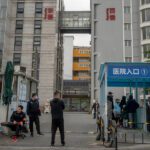Global Courant 2023-05-08 11:05:32
After three years, three months and four days of having classified the coronavirus as a threat to humanity, the World Health Organization announced, last Friday, the end of said declaration of international health emergency. The pronouncement was widely disseminated, but for the majority of the population it passed with little relevance because serious cases or deaths due to covid-19 are no longer reported, with which other pressures of life, such as inflation, unemployment or insecurity have returned to occupy the daily concern.
There are still groups that deny the pandemic, which attribute the matter to a conspiracy by an elite of countries and even individuals. Despite their lies, they fail to explain the 765 million officially registered positive cases and even less the 6.9 million deaths, figures that for many fall short due to underreporting and deficiencies in health care coverage. Even less could the conspiracists deny the prolonged agonies of entire families who faced the symptoms of the disease and came out ahead in the confinement of their homes. In Guatemala, the figures exceed 1.2 million cases and 20,189 deaths, among which there were doctors and health personnel who offered their lives in the service of others.
Without a doubt, the development of anticovid vaccines constituted one of the most accelerated and expected pharmacological races; it marked a turning point in the approach to the disease, halted billions of potential infections, allowed a return to productive activity and also highlighted the importance of scientific health professions, especially those related to virology and infectious diseases.
The experiences of confinement at 4 in the afternoon, the deep silence of the cities and the dissemination of symbolic acts carried out by artists, musicians and Internet users from their homes are part of the anecdote that will be shared with future generations. The pandemic was the cause of the total suspension of processional processions for three holy weeks. For almost six months, religious activities were carried out remotely, and they were resumed under the well-known practices of disinfection, use of a mask, and social distancing. Something similar happened with students of all levels, from pre-primary to universities, who only began their gradual return to the classroom in 2022.
In fact, the pandemic impact on the teaching-learning process has lights and shadows; On the one hand, there is the development of new methodologies for student autonomy, the use of technological tools and a recovery of the teacher’s role as intelligence manager. However, there were also strong setbacks in coverage, educational quality, and capacity building in literacy and math skills. Many students passed a grade between 2020 and 2022, but reached the 2023 cycle with gaps and gaps that must be corrected.
In Guatemala, issues such as the purchase of Russian vaccines have not yet been fully clarified, half of which were lost due to lack of use and due to the greater confidence in donated drugs, mostly from the US. five hospitals that were supposed to be permanent. Three temporary centers are already closed and the only new hospital was built by Taiwan, which was equipped with a fraudulent purchase of used and unusable equipment from the Industry Park temporary hospital.




